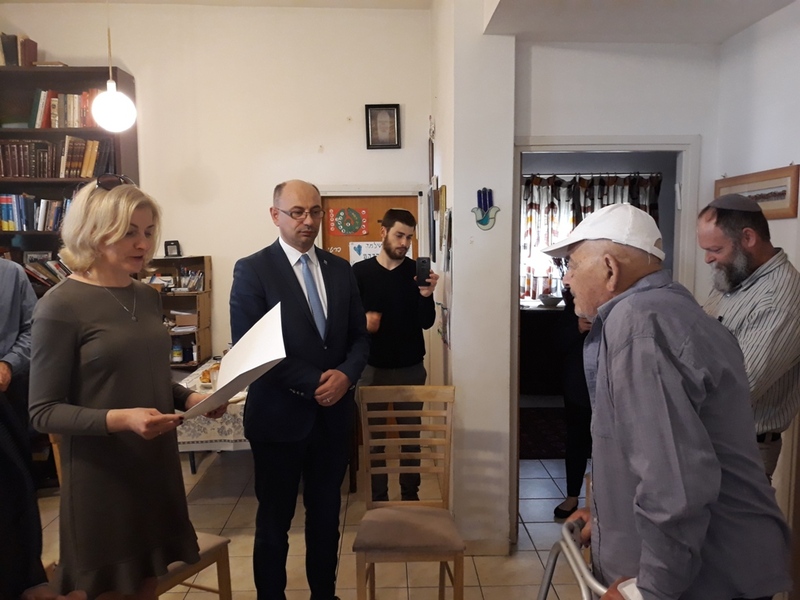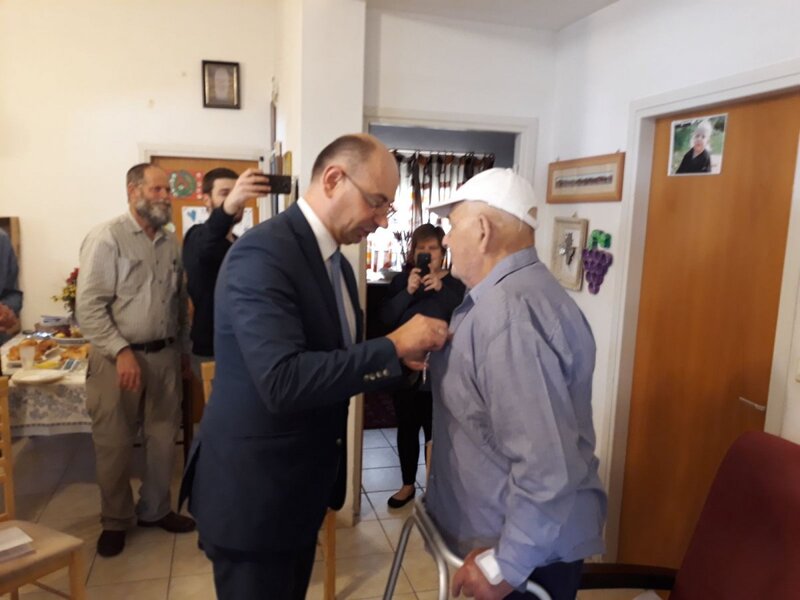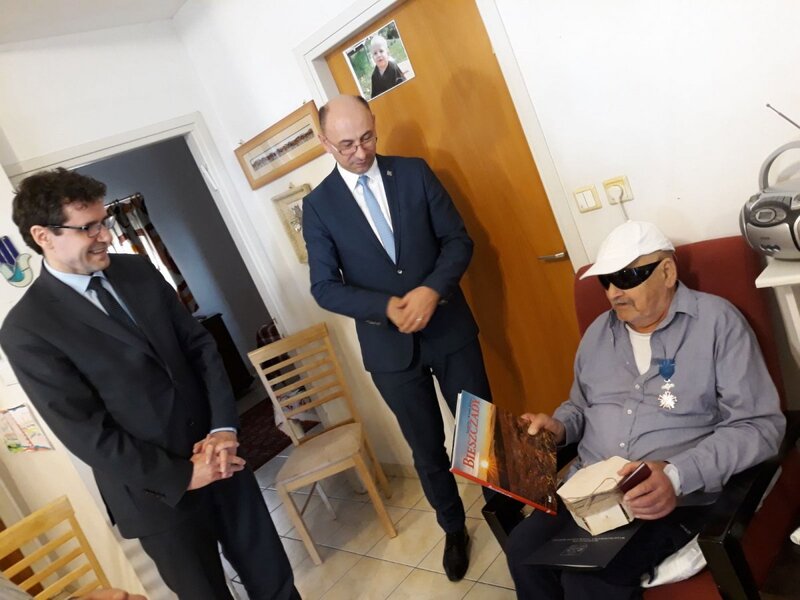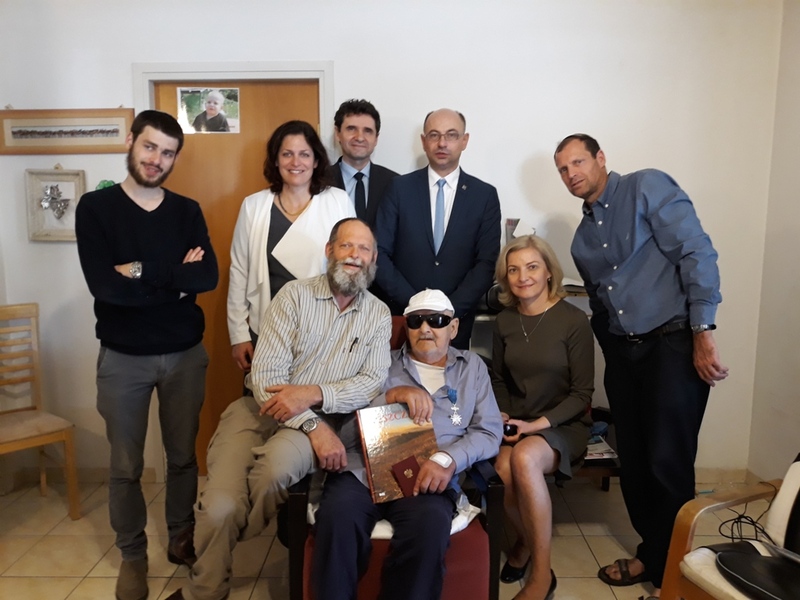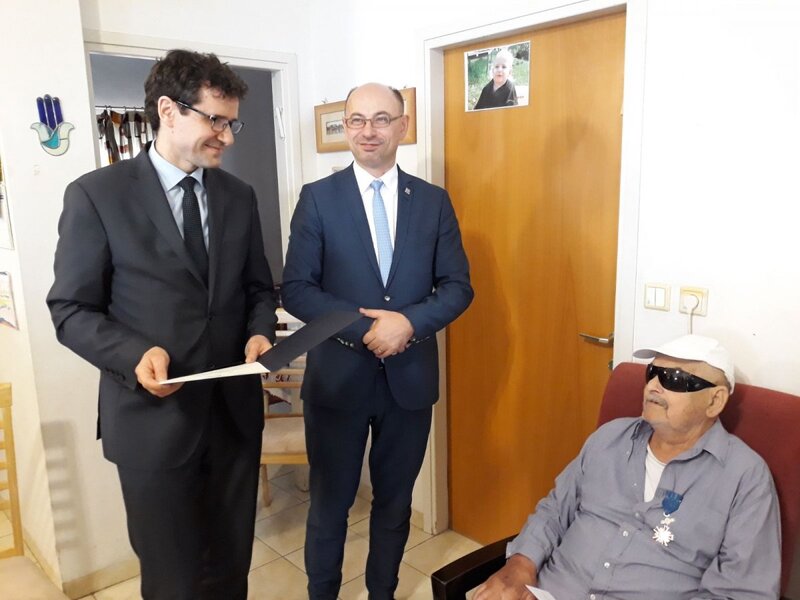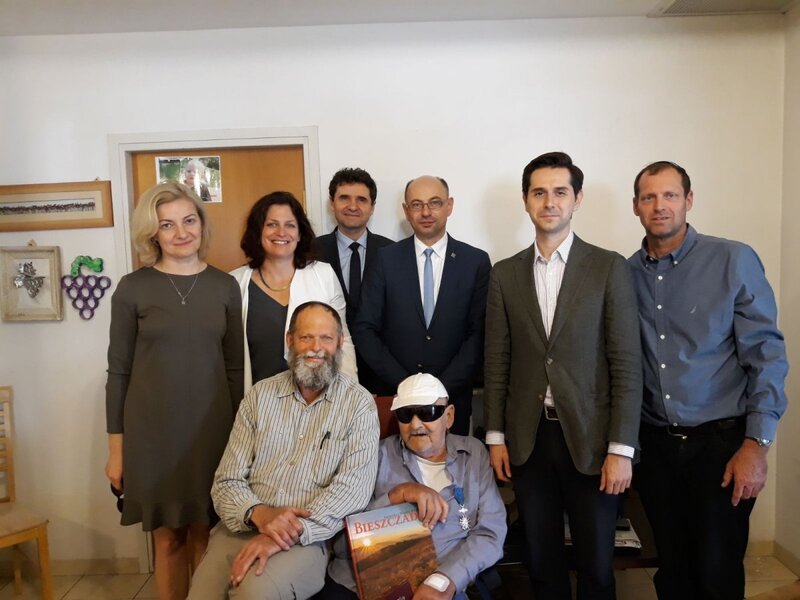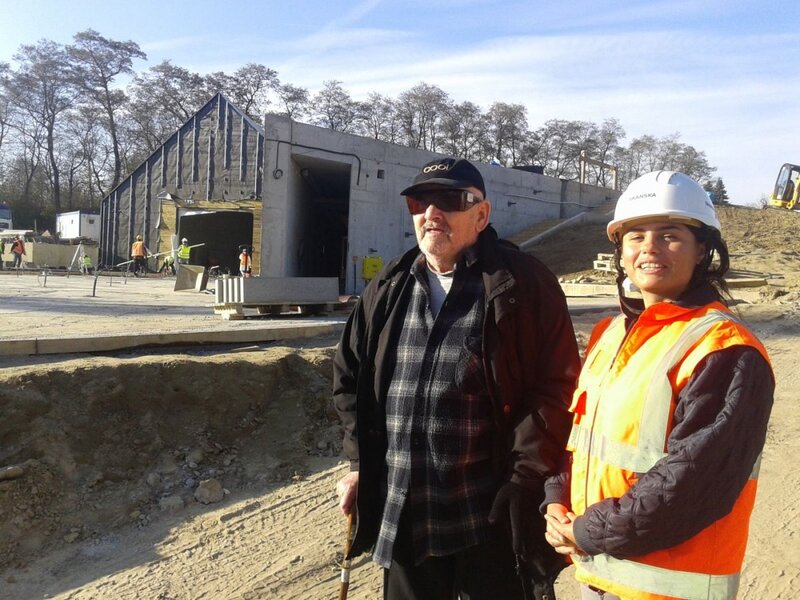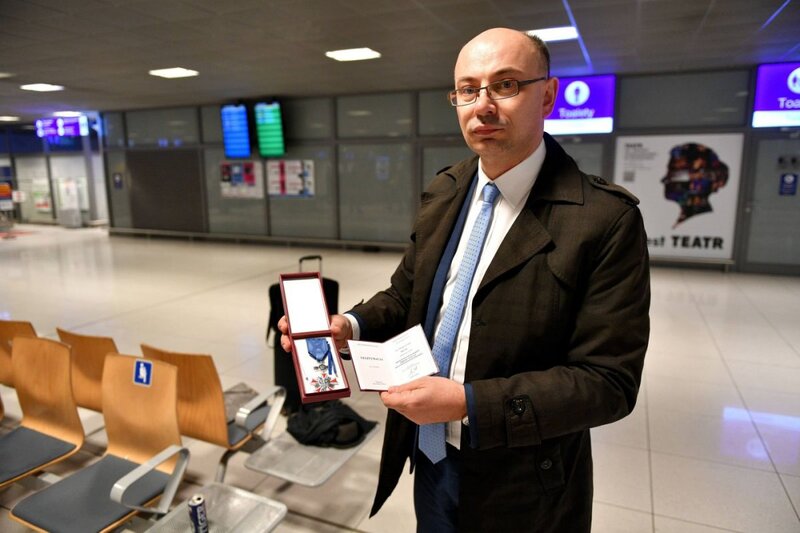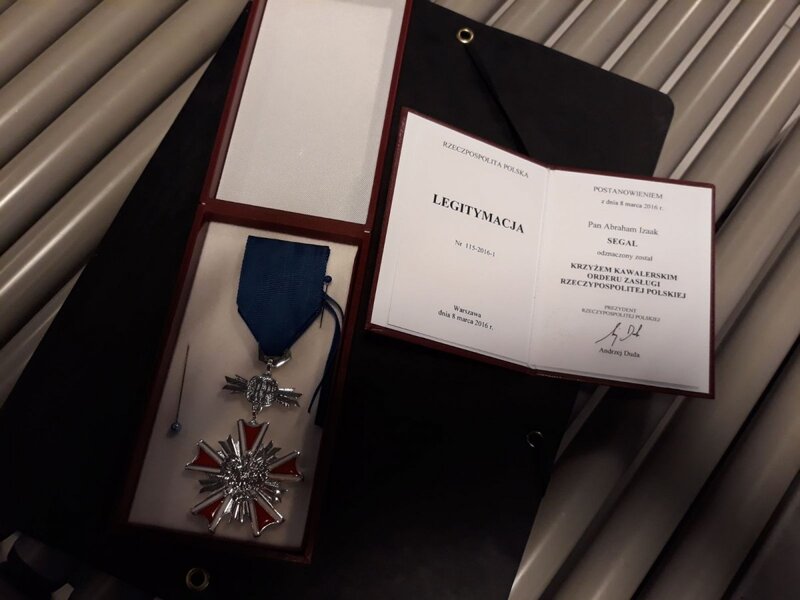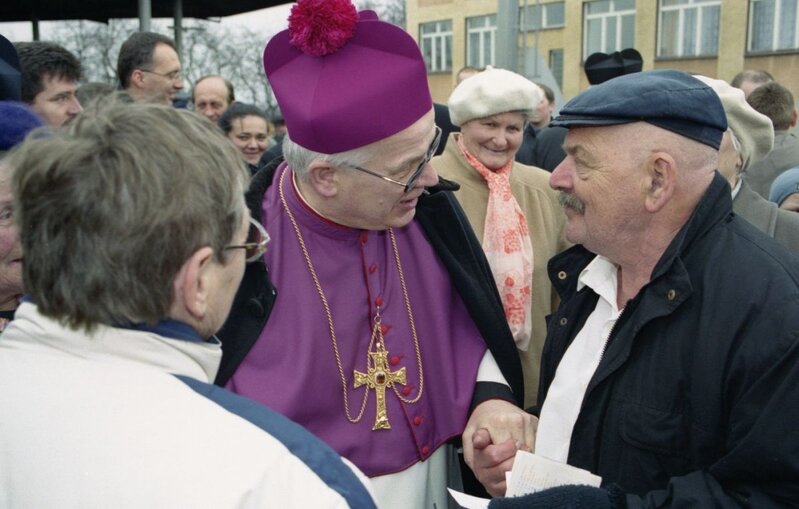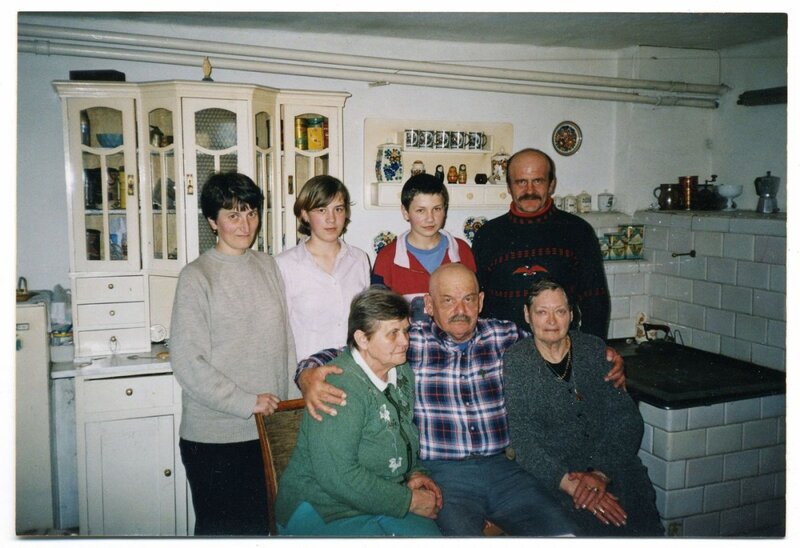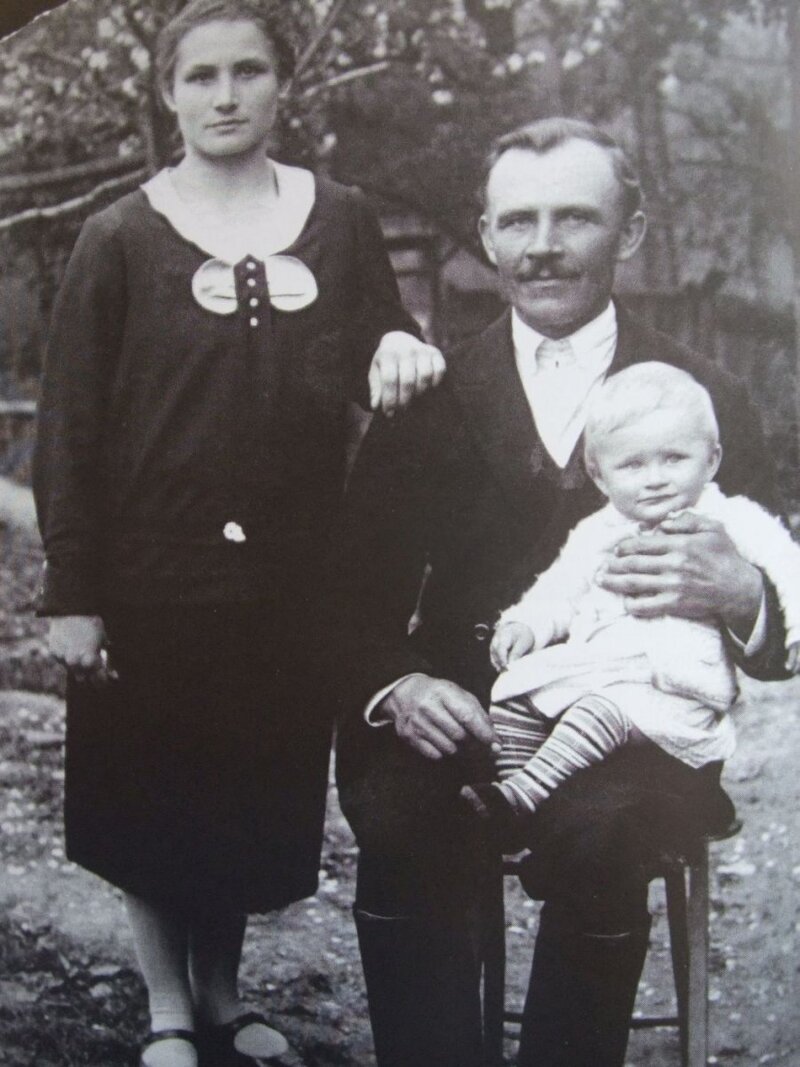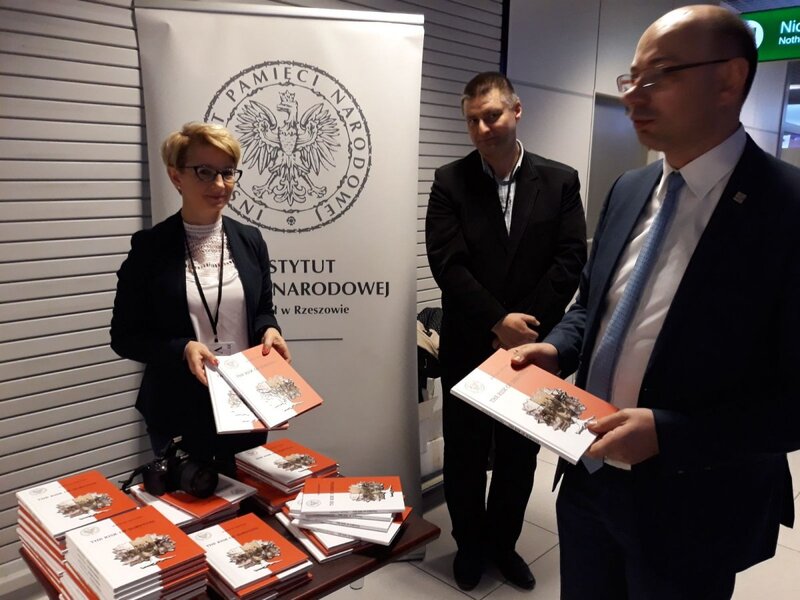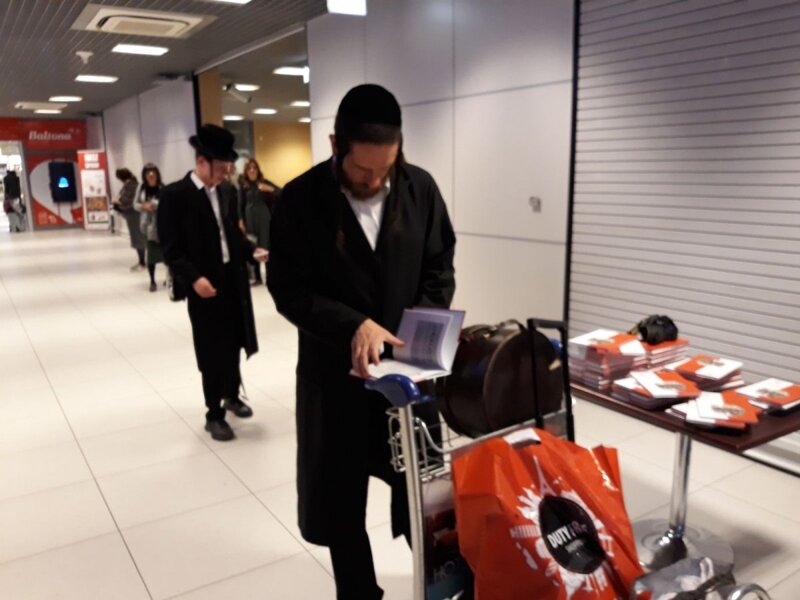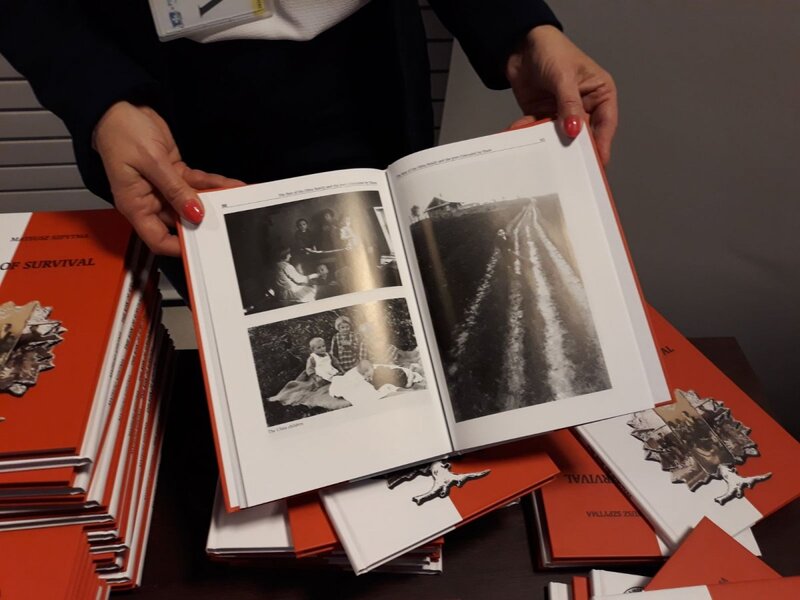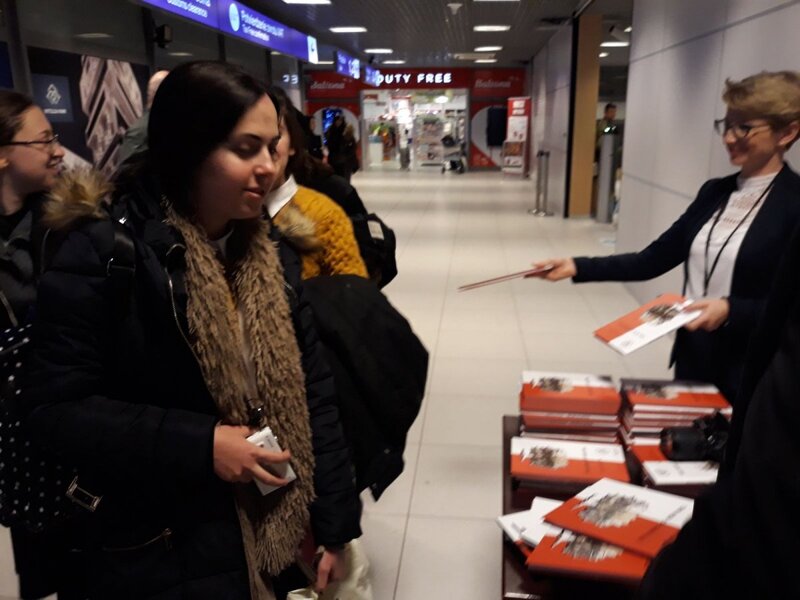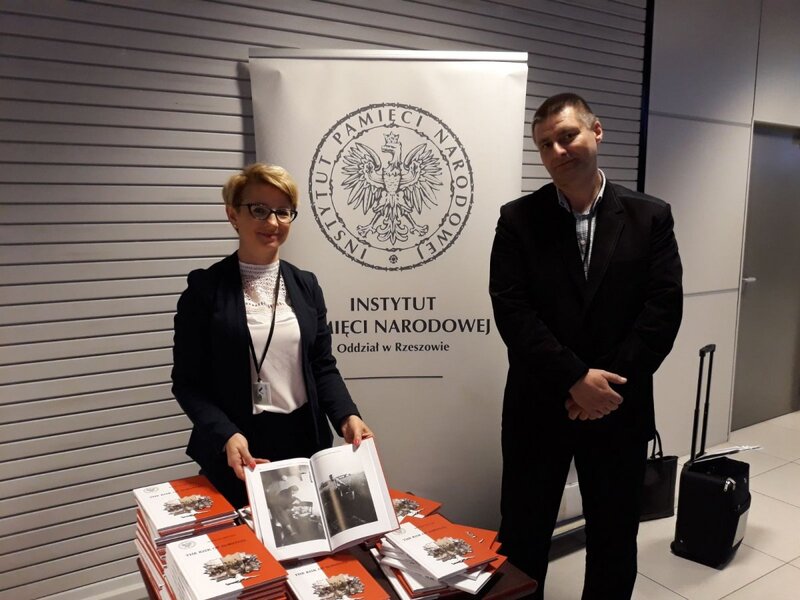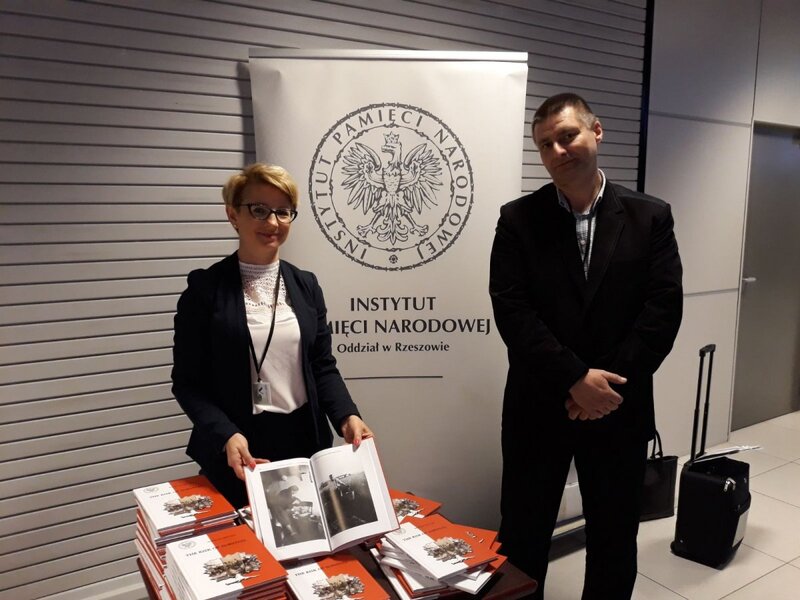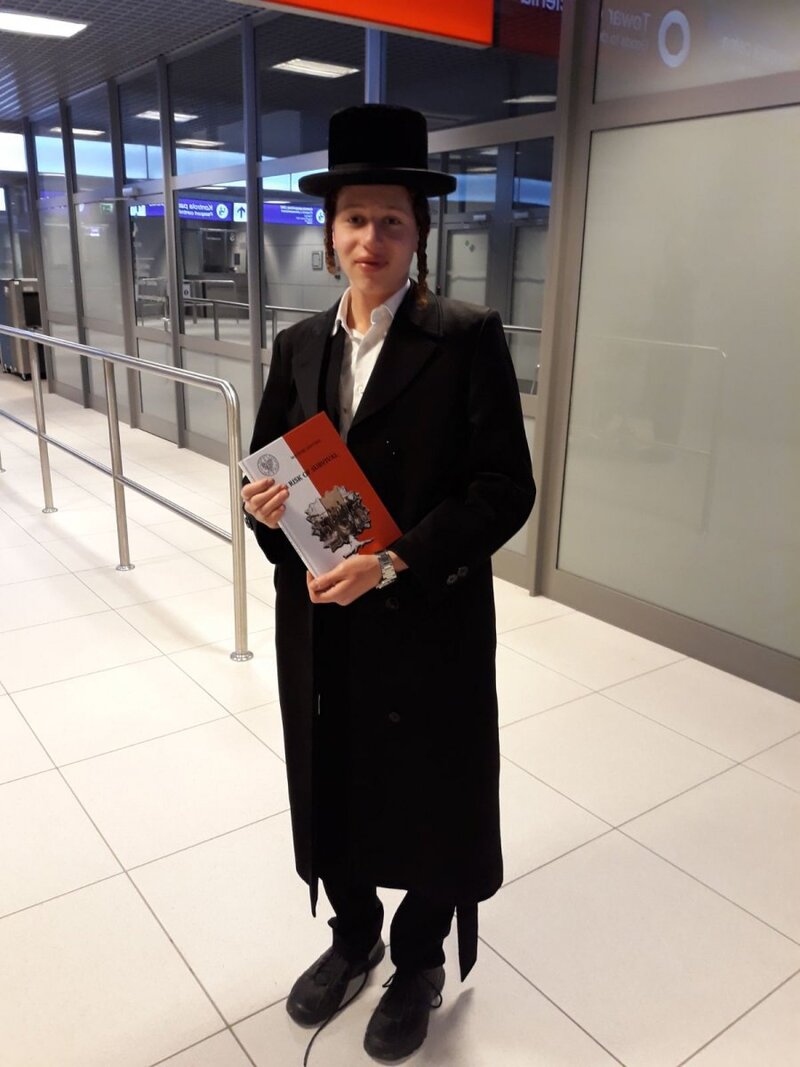On March 12 the ceremony of awarding the Knight's Cross of the Order of Merit to the Republic of Poland to Abraham Segal - a Holocaust survivor, involved in propagating knowledge about the participation of Poles in saving Jews during World War II took place in Haifa. The distinction was granted by the President of the Republic of Poland.
Originally, the awarding ceremony was to take place on March 17, 2016 during the opening of the Ulma Family Museum of Poles Saving Jews in World War II located in Markowa. However, health issues have prevented Abraham Segal from coming to Poland throughout this time. In connection with the second anniversary of the Museum's opening, on behalf of the President of Poland, Dr Mateusz Szpytma, the President of the Institute of National Remembrance and co-initiator of the Museum, as well as its former head, presented Mr Segal with the distinction. Bogdan Romaniuk, the Vice-Marshal of the Podkarpackie province and the second co-originator of the creation of the Museum, as well as Michał Cholewa - the First Secretary of the Polish Embassy also took part in the ceremony.
Dr Szpytma thanked Mr Segal not only for the memory of the Cwynar family, who had hid him during the war, but also about other Poles who saved Jews. Abraham Segal said that he was "extremely moved and happy that the delegation headed by the Deputy President of the IPN, with whom he feels a particular bond, awarded him with the Presidential Order of Merit of the Republic of Poland". He emphasized his pride in being a Pole and added that he would once more like to be a Polish citizen. He further confessed that from the times of occupation which he spent in Markowa, he has a particularly vivid memory of the time that he heard about the Germans murdering the Ulma family and the Jews that they were hiding.
Apart from expressing his gratitude, Deputy President Szpytma also passed on greetings from the daughters of Jan and Helena Cwynar, with whom Abraham grew up in 1943-1944.
In connection with the awarding of the Order of Merit, the IPN offered the Rzeszów - Jasionka Airport Authorities that the participants of the first regular flight of LOT Polish Airlines on the Rzeszów-Tel Aviv route (12 March 2018) will be presented with a copy of Dr. Mateusz Szpytma's book “The Risk of Survival” portraying, among others, the story of Abraham Segal's hiding in the Podkarpacie region along with his photos. Dr Mateusz Szpytma, the author of the book also travelled on that particular flight.
Photos: Katarzyna Ratajczak-Sowa (IPN)
* * *
Abraham Izaak Segal was born on May 30, 1930 in Łańcut. During the first period of the occupation, together with his Jewish family he stayed in various places in occupied Poland. In 1943, during the liquidation of the Jewish ghettos in the Eastern Borderlands by the Germans, Abraham's parents and his brother Michał were executed. Abraham lost his entire immediate family. He survived the war thanks to the help of families from Podkarpacie.
He first hid in Krzemienica with Antoni and Anna Skrobacz, friends of his grandparents, who instructed him how to behave so as not to reveal his origin. Unable to hide him anymore, they advised him to look for work in the neighboring village of Markowa. There he worked as a shepherd at Jan and Helena Cwynars’ who ran a farm together with their daughters Czesława and Maria. In Markowa, he did not admit to being a Jew. As an orphan who lost his parents during the war, he worked on the Cwynar’s farm under the name of Roman Kaliszewski from summer 1943 until the entry of the Red Army in August 1944. From the accounts of Segal and the children of the Cwynars, it appears that the hosts were aware of his true origin. Although on 22 March 1944, Germans murdered the Ulma family for hiding Jews in this village, the Cwynar family continued to hide a Jewish boy, whom they liked very much and even intended to adopt. It was all the more dangerous that Jan Cwynar was then a member of the leadership of the underground folk movement in the Przeworsk area. Segal is one of the 21 Jews saved by the inhabitants of Markowa.
At the end of 1946, after a short stay in Prague, Abraham Segal went to Palestine. He spent the first years in a kibbutz. He founded a family and brought up three children. He currently lives near Haifa. For years, however, he has been returning to Podkarpacie to bear witness to his survival.
On 1 January he contacted for the first time with the Cwynar family, and a long break in contacts followed. In 1995 he decided to visit Poland, especially the families who hid him during the war. In 2004 he was a guest during the ceremonial unveiling of the monument to the Ulma family in Markowa. His speech during this ceremony, in which he thanked Poles for saving Jews, was resounded in the media. He decided then that he would propagate in Israel the knowledge about how many Poles saved Jews and how many of them were murdered by the Germans for it.
Segal does not conceal his gratitude to the Poles and, together with his family, disseminates knowledge about German occupation among the next generations of Israelis. In many places in Israel, including schools, he spoke about Markowa and the heroic attitude of the Ulma family and other residents rescuing Jews. He gave numerous interviews to the Israeli and Polish media. To a large extent thanks to his involvement the village of Markowa is visited by Jews, who pray at the grave and at the Ulma monument, and recount cases of rescuing Jews.
It is estimated that about 5,000 of young Israelis come to Markowa annually. Older Jews also visit. Abraham Segal tried to bring his whole family to Markowa. He showed Poland to all his children and the majority of grandchildren. He persuaded his daughter-in-law Tamar Segal to visit Poland, who as a deputy director of high school in Jerusalem came to Poland with almost 200 students in July 2015. Thanks to Segal, this group met with young people from the middle school in Markowa. His family took part in the opening of the Ulma Family Museum of Poles Saving Jews in World War II, and during the ceremony, Segal's message addressed to the participants was read.
Certainly, Abraham Izaak Segal contributed to the fact that in 2013 the following words appeared on the website of Yad Vashem: "The crime on the Ulmas - when the whole family was murdered along with the hidden Jews - became a symbol of Polish sacrifice and martyrdom during German occupation."
